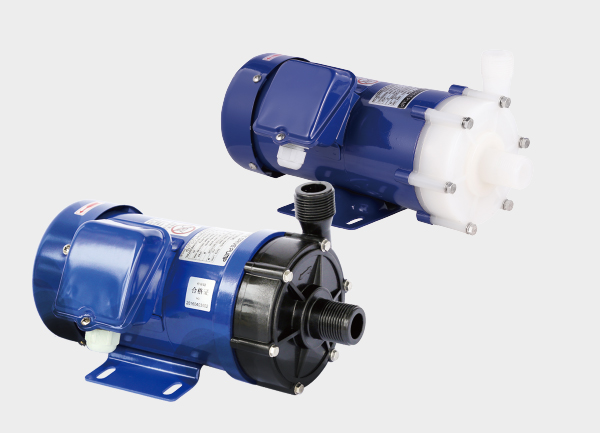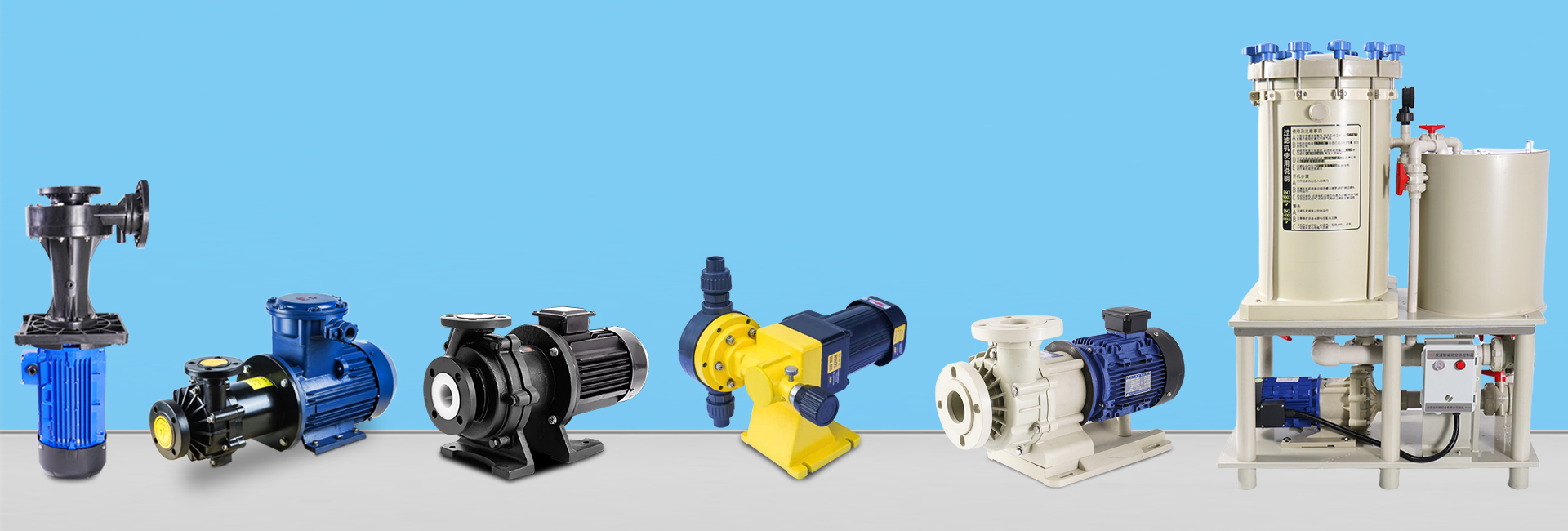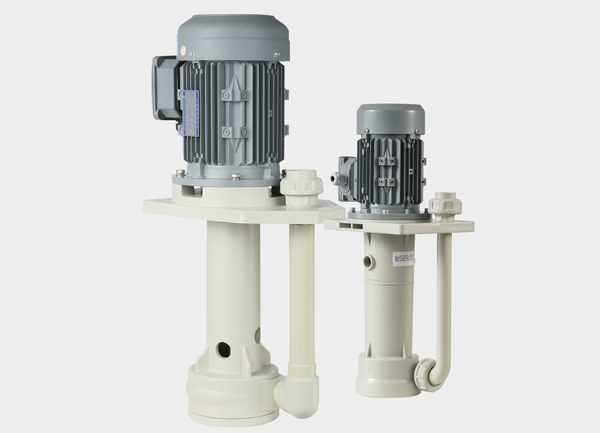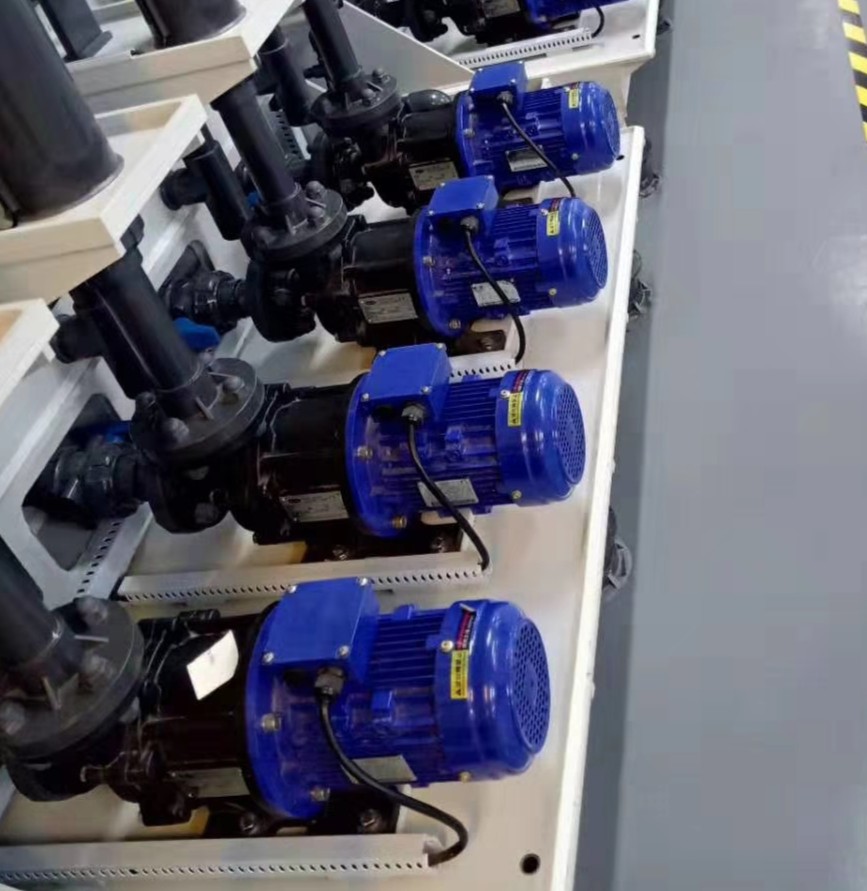1. Overview
A fluoroplastic chemical pump is a corrosion-resistant pump made from advanced fluoropolymers such as PTFE (Polytetrafluoroethylene), FEP (Fluorinated Ethylene Propylene), or PFA (Perfluoroalkoxy Alkane). These materials exhibit exceptional chemical stability, making them ideal for handling acids, alkalis, oxidizers, and organic solvents in industries such as chemical processing, metallurgy, pharmaceuticals, surface treatment, and wastewater treatment.
Compared to traditional metal pumps, fluoroplastic chemical pumps offer absolute corrosion resistance, ensuring long-term reliability in highly aggressive environments.

2. Mechanism of Corrosion Resistance
The outstanding corrosion resistance of fluoroplastics is mainly attributed to the following factors:
Stable Molecular Structure
The carbon-fluorine (C–F) bond in fluoroplastics is one of the strongest chemical bonds known, with a bond energy of approximately 485 kJ/mol—far higher than the C–H bond (414 kJ/mol). This ensures that fluoroplastics remain stable even in strong acids, alkalis, and oxidizing environments.Highly Inert Surface Layer
The fluorine atoms form a dense protective shell around the carbon backbone, preventing chemical penetration and reactions with most substances.Non-Absorptive and Non-Swelling
Fluoroplastics such as PTFE do not absorb water or polar solvents, maintaining excellent dimensional stability without swelling or softening during use.Self-Lubricating Properties
PTFE and its derivatives have extremely low friction coefficients, allowing smooth operation without lubrication while minimizing localized corrosion due to frictional heat.
3. Common Fluoroplastic Materials and Their Corrosion Resistance
| Material | Full Name | Temperature Range (°C) | Corrosion Resistance Characteristics |
|---|---|---|---|
| PTFE | Polytetrafluoroethylene | -80 to 200 | Resistant to all acids, bases, and solvents; unstable only in molten alkali metals or high-temperature fluorine gas |
| FEP | Fluorinated Ethylene Propylene | -70 to 180 | Similar to PTFE, better molding capability and transparency |
| PFA | Perfluoroalkoxy Alkane | -80 to 220 | Best overall performance, superior heat and chemical resistance |
| PVDF | Polyvinylidene Fluoride | -40 to 150 | Resistant to inorganic acids, halides, and salts; higher mechanical strength and lower cost |
| ETFE | Ethylene Tetrafluoroethylene | -80 to 150 | High impact strength, good resistance to dilute acids and alkalis, moderate cost |
The right fluoroplastic material should be selected based on the specific medium, temperature, and mechanical requirements.
4. Corrosion Resistance by Chemical Medium
| Chemical Medium | Corrosion Resistance | Recommended Material |
|---|---|---|
| Sulfuric Acid (H₂SO₄) | Stable at all concentrations | PTFE / PFA |
| Hydrochloric Acid (HCl) | Fully inert | PTFE / PVDF |
| Nitric Acid (HNO₃) | Stable below 120°C at any concentration | PFA |
| Hydrofluoric Acid (HF) | Excellent stability | PTFE |
| Sodium Hydroxide (NaOH) | Stable below 100°C (≤50% concentration) | PTFE / FEP |
| Organic Solvents (Acetone, Benzene, etc.) | Fully inert | PTFE / PFA |
| Chlorine and Chlorides | Chemically stable, non-reactive | PTFE / PFA |
5. Comparison with Metal Chemical Pumps
| Feature | Fluoroplastic Pump | Metal Pump (Stainless Steel / Alloy) |
|---|---|---|
| Corrosion Resistance | Resistant to almost all chemicals | Susceptible to strong acids, chlorides, and oxidizers |
| Weight | Lightweight | Heavy |
| Mechanical Strength | Lower, may require reinforcement | High |
| Cost | Medium to high | Medium |
| Maintenance | Low, no rust or coating needed | Higher, may require periodic anti-corrosion coating |
| Applicable Media | Strong acids, bases, salts, solvents | Neutral or weakly corrosive fluids |
6. Typical Applications
Acid-Base Neutralization Systems: PTFE-lined pumps for strong acid and alkali transfer.
Electroplating and Etching Lines: PVDF pumps resist chloride corrosion.
Chemical Distillation Systems: PFA pumps handle high-temperature acidic vapors.
Semiconductor and Pharmaceutical Industries: Ultra-pure PFA pumps for transferring high-purity chemicals.
7. Conclusion
The fluoroplastic chemical pump stands out as an ideal corrosion-resistant solution for transferring highly aggressive and high-temperature fluids.
With excellent chemical inertness, thermal stability, and zero leakage potential, these pumps ensure reliable performance and extended service life.
When selecting a pump, it is important to consider chemical composition, concentration, temperature, flow rate, and mechanical load.
For the most demanding environments, PFA or reinforced PTFE pumps are recommended to achieve superior durability and operational safety.







